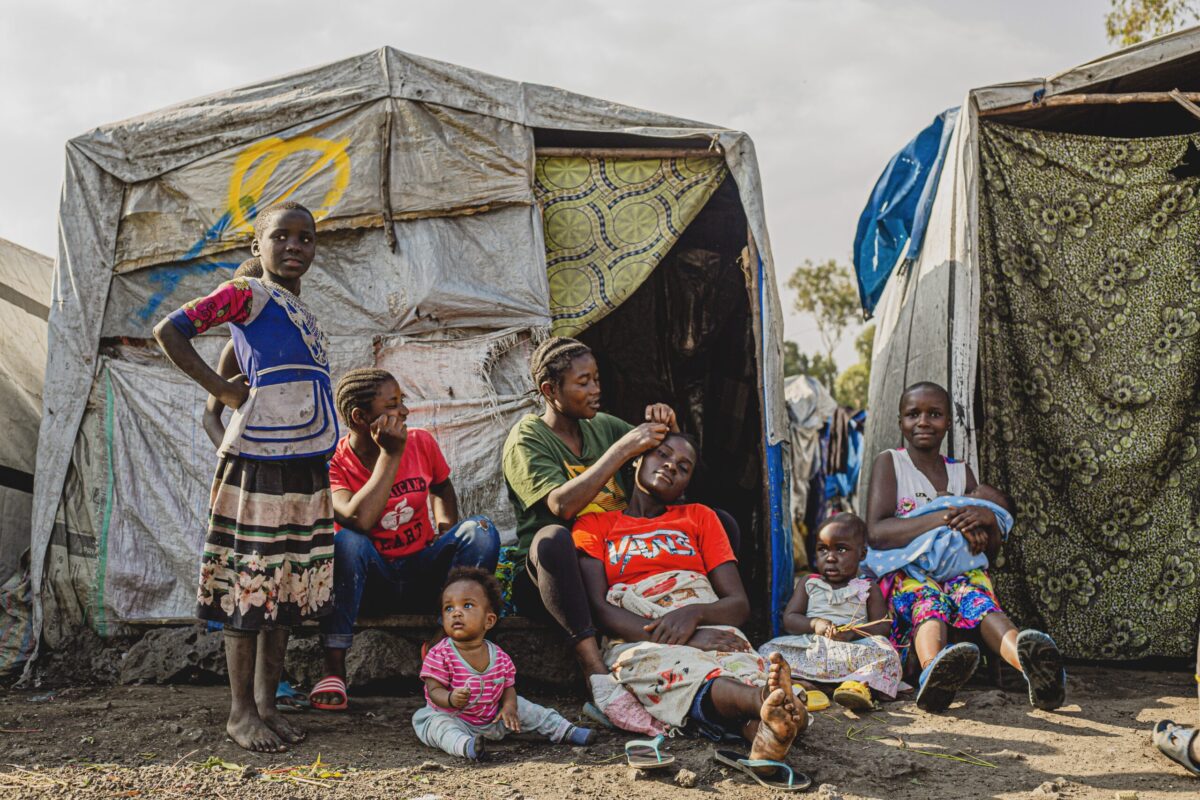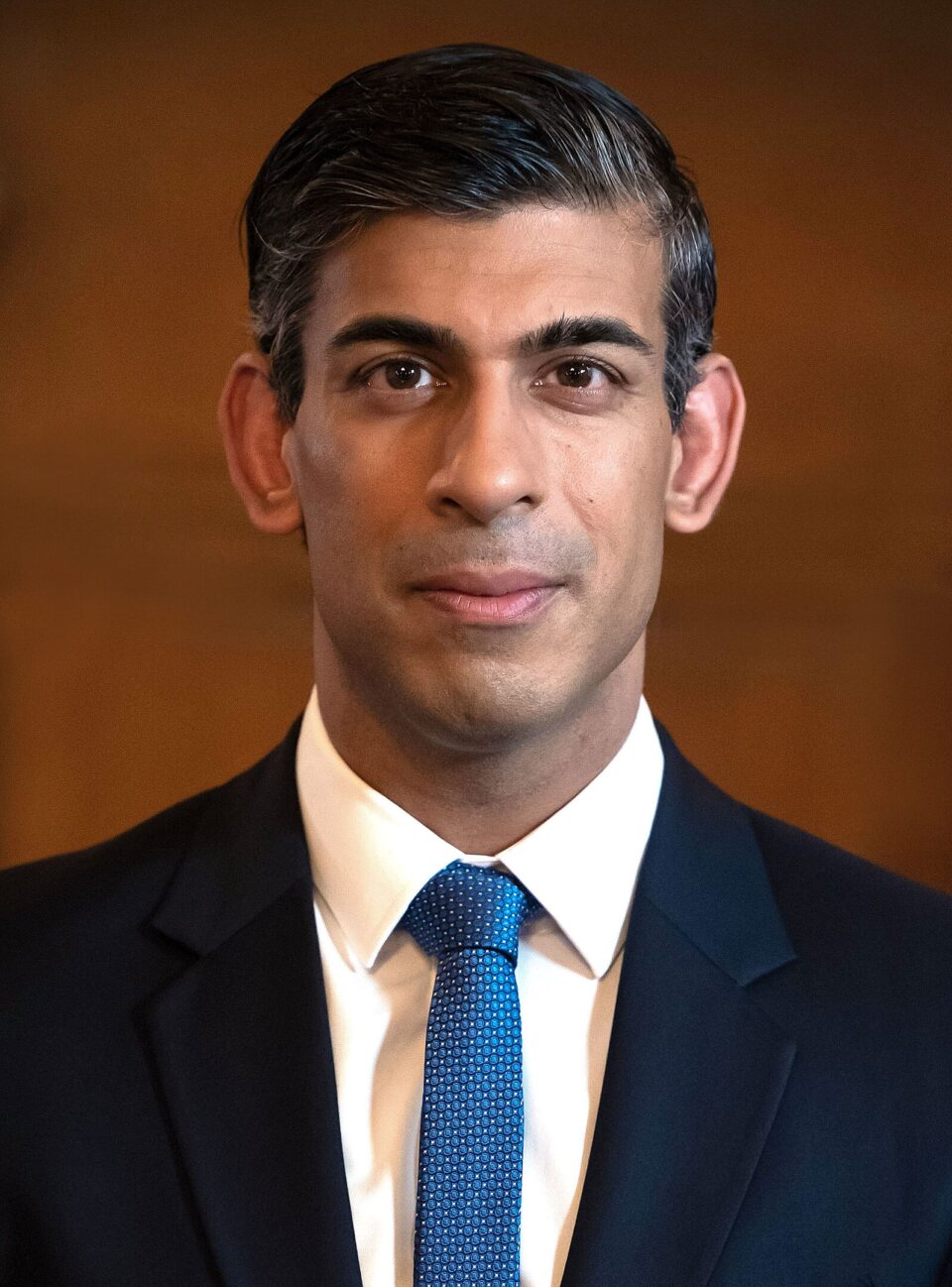How an African country that doesn’t have the minimum guaranteed needs of a reliable asylum system and human rights became a safer haven than Great Britain

History repeats itself, but each time it costs more. Attempts by the British government to buy refugees a one-way ticket to Rwanda against their will are also being repeated, although the cost has increased enormously compared to the first attempt two years ago. What’s more, the Labor opposition says they can send six people into space for less than this government is willing to spend to send one person to Rwanda. However, British Prime Minister Rishi Sunak expects that “deportations will finally start in the spring”, before June. The story of sending or, more precisely, removing asylum seekers from one’s own territory to someone else’s territory is not controversial because it costs as much as a flight to the edge of space, nor because for this purpose the British government named Rwanda a safe country, but above all because, if it comes true, this would be an unprecedented event. And it’s not like until now the world could boast of empathy towards the refugees it welcomes by raising ever higher walls.
What is the specific plan of Sunak’s cabinet, which was designed by none other than his former boss and Prime Minister Boris Johnson? As it happens, Great Britain, realised after Brexit that they could not return asylum seekers to European countries to the extent they had imagined, so they turned to countries outside Europe. Only Downing Street knows why Rwanda precisely, though it’s not hard to imagine Johnson squinting and randomly pointing his finger at a map of Africa. History repeats itself. The only thing that matters is that it is Africa.
Rwanda cannot pride itself on a fair and reliable asylum system and human rights although in recent years, in an attempt to overcome the dark history painted by the white man, much has been done in terms of economic growth and social development. Therefore, they need money as much as they need rights and justice, so London has offered a substantial amount, which, of course, will be accompanied by democracy. The British government is already trying to declare Rwanda a safe country – if necessary, a promised land – by amending the draft law in the parliament. Last year, when Home Secretary Priti Patel signed a multimillion-dollar deal to resettle refugees in Kigali, she praised the “arrangement” as an effective way to process the growing number of illegal arrivals and claimed the country was a haven. Interestingly, the British government had previously expressed concern in the UN about allegations of “fatal outcomes in custody, disappearances and torture” in Rwanda, and about restrictions on civil and political rights. It appears that since then Kigali has progressed at the speed of lightning, and what those who are meant to get on the planes think about it is evident from the fact that they are on hunger strike, threatening to take their own lives.
The British plan is another example of the tendency of European countries to externalise the asylum issue
However, not everything flows as smoothly as a cup of lukewarm English tea down the throats of British bureaucrats while they are again preparing the plane to Rwanda that was prevented from taking off by the European Court of Human Rights last year. The court had to do this because the decision to remove asylum seekers from British territory to another, and then precisely to a country that cannot be considered safe, is against international law and is considered a dangerous precedent. If the plane does happen to transfer people who don’t want it from the UK to Africa, it would be a major blow to the rule of law in Europe. The ruling Conservatives would betray the proud tradition of providing refuge to those fleeing war and persecution and would violate the obligations under the 1951 UN Convention on Refugees. The British plan is another example of the tendency of European countries to externalise the asylum issue, such as Denmark, which treats Morocco in this way. However, no country has gone as far as Great Britain, even though similar agreements – such as the one the EU had with Turkey during the Syrian refugee crisis, when it gave millions to Turkey to stop these people from moving on – show that this is not the solution. Flying people to another continent is a new level of negativity. It is also a bad signal to other countries to resort to illegal practices.
Currently, the draft of this deportation bill is subject to “ping pong” in the British Parliament to introduce changes that would annul the items that caused the Supreme Court to rule last year that the Rwanda plan violates human rights. The changes will make this country a safe place and the sum of £3,000 per person will remove the fact that asylum seekers are being moved against their will even before their claim has been processed. Namely, London’s latest decision is to offer the possibility for asylum seekers to voluntarily go to Rwanda for £3,000. Labor says that in this way the government admits that its project has failed. The Tories retort that they have missed the point. Rwanda should serve as a huge disincentive for those who wish to enter the UK in the future. We are not talking about the migrants who come in private jets and stay, but about those who risk their lives in small boats crossing the English Channel to escape wars, persecution, and famine. The “disincentive” of newcomers is one of the pillars of Brexit that has torn the UK from its decades-long marriage to the EU. The citizens were then promised that “they will not come, take your jobs, and stifle the system.” Britain must stop illegal migration, which by the way is stopping by diverting it to others. It is a matter of life and death for them, especially when it comes to the conservatives remaining in power. However, the controversial plan is not only a matter of some government’s survival. It could mean undermining the refugee system as a whole, which lacks compassion in providing shelter to the vulnerable. If England does what it has set out to do, then any other country can do it. Let’s remember the Baltic states and Poland two years ago, the Italian practice of returning ships with refugees, and the recent intention of Rome to conclude a similar agreement with Tunisia. We should be fair and say that the human rights of refugees are not respected at any European borders, and the situation will deteriorate further. There are even calls among the ruling conservatives to withdraw, if necessary, from the European Convention on Human Rights for the sake of the new asylum policy. It is unthinkable that a country like Great Britain, with a glorious history of the idea of human rights and the best experts in this field, would allow this. It would mean the end of the Council of Europe, because if they left, why would countries like Hungary and Poland remain there?
The Supreme Court has ruled that the Rwanda plan violates human rights
Sunak, himself a child of immigrants, sees nothing controversial in the plan, which he calls a national priority even though he knows that this is a story that never ends because – migration as such is unstoppable. Nevertheless, populist politics has managed to group people, refugees, asylum seekers, victims of human trafficking and gender-based violence, and unaccompanied children, all into one term – migrants. Thus, the European public has been deprived of empathy. They are no longer people in danger and with problems that have a name. They are migrants. They are a security risk. A threat to us. Although it is more likely still a matter of a refugee crisis rather than a migrant crisis.
Compliance with international legal obligations is therefore more necessary today than ever. The issue of the refugee crisis today is a matter of human integrity. These days, the anti-immigrant line has become the new mainstream. Empathy is an extinct emotion. And that’s not the end.
“It’s not the beginning of the end, but maybe it’s the end of the beginning”, as the British Prime Minister said – not this one who tightens the fences, but the one with a top hat on his head and a cigar in his mouth who defended humanity from “racially pure states” in the Second World War.
Migrant Colonies
Experts claim that the anti-immigrant views of Italian Prime Minister Giorgia Meloni and her British counterpart Rishi Sunak have found an easy foothold among European centrists, where political blocs are being created ahead of the June elections for the European Parliament. As far as these elections are concerned, it is expected that the right-wing forces will perform well. Thus, this line has a wider influence on European politics. Sunak has already agreed with French President Emmanuel Macron on measures to reduce English Channel migrant crossings. He reached an agreement with Tirana on the return of Albanians, and he is also receiving support in establishing stronger cooperation between British agencies and Frontex. London will also focus on cooperation with Bulgaria (a key point of entry into the EU) and especially Turkey, from where at least one million Syrian and Afghan refugees could head to Western Europe. It is increasingly being heard that countries like Rwanda, Albania, Tunisia, and Moldova are becoming migrant colonies. There are rumors that Rome will divert rescue ships with migrants to Albania. Incidentally, Albanians make up the largest percentage of those who flee in boats across the English Channel to Great Britain.

Author: Ljiljana Vujić